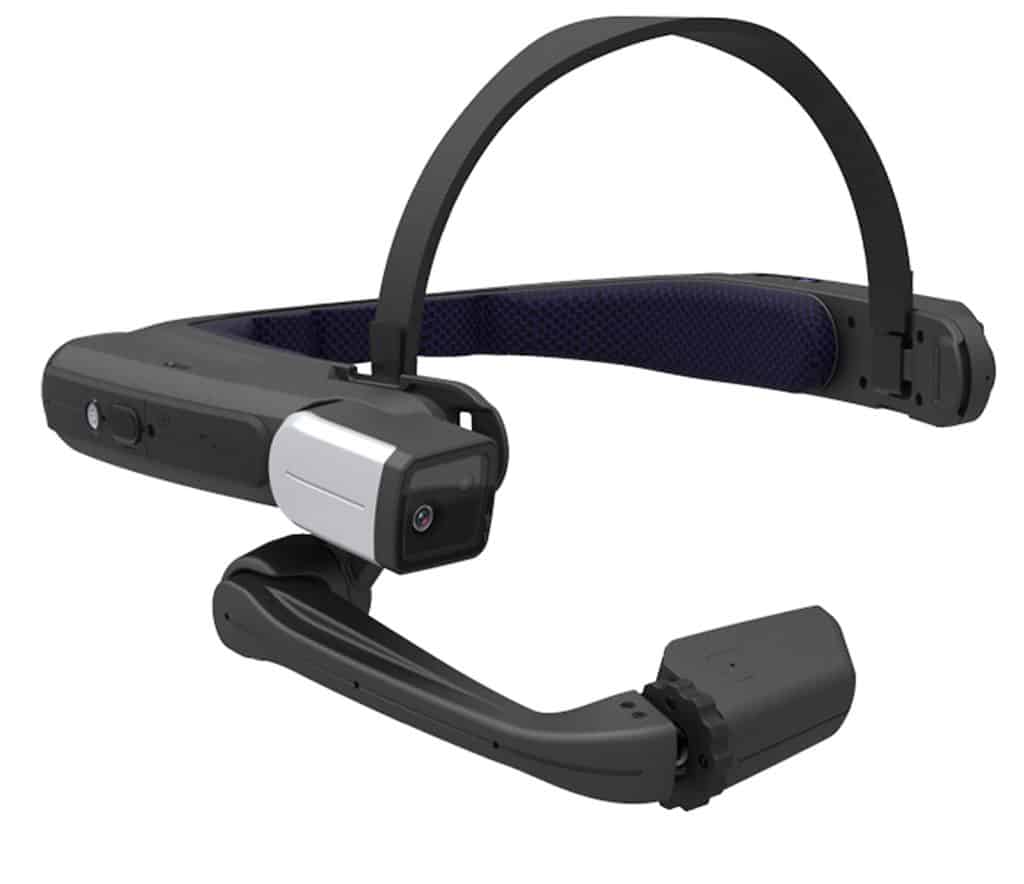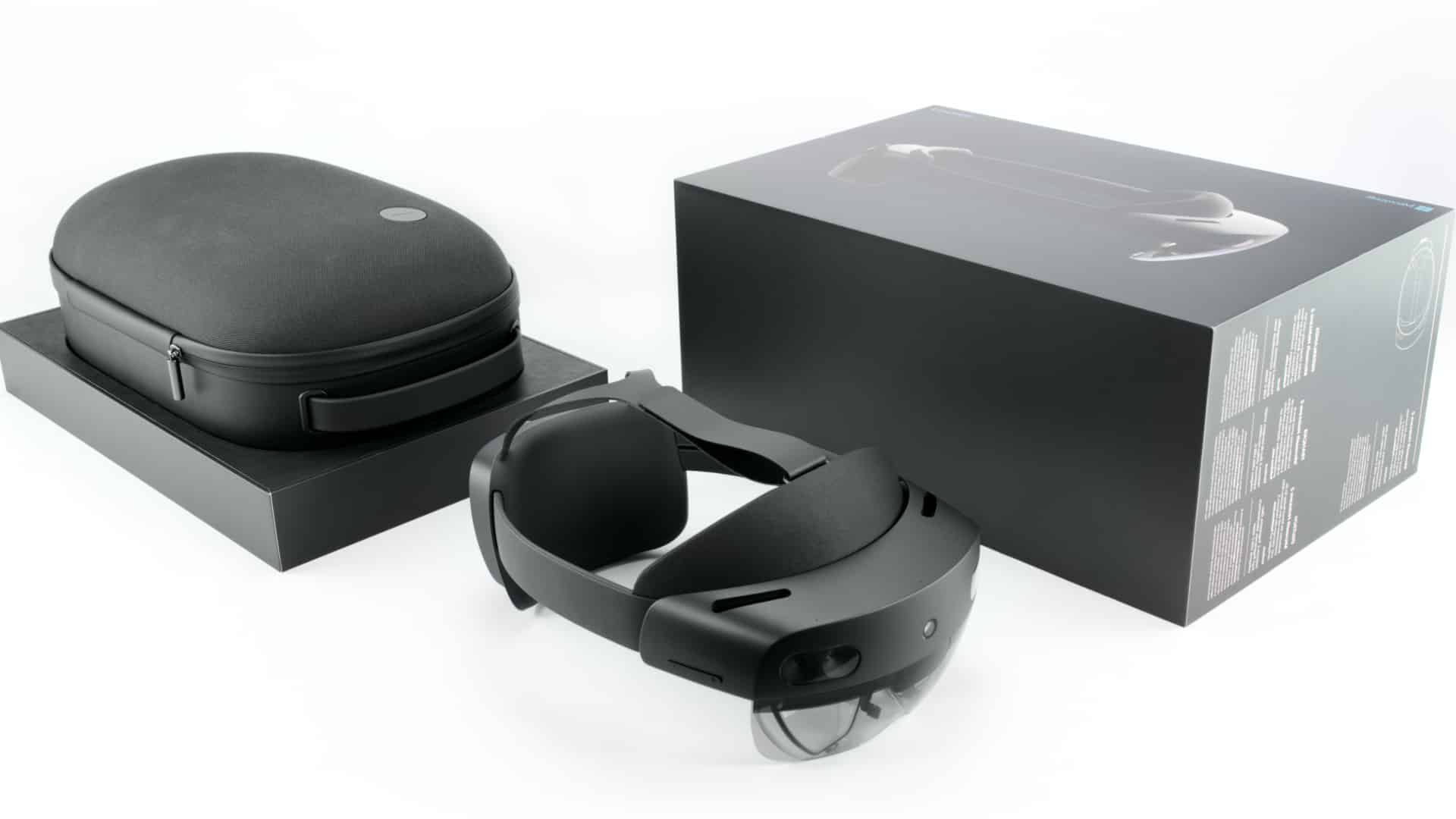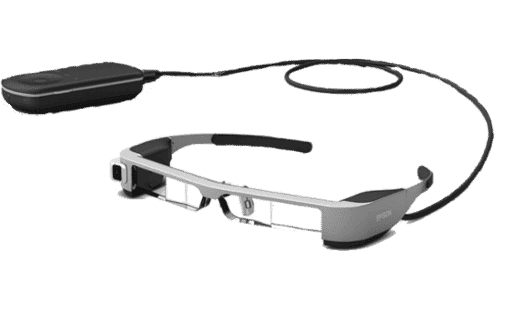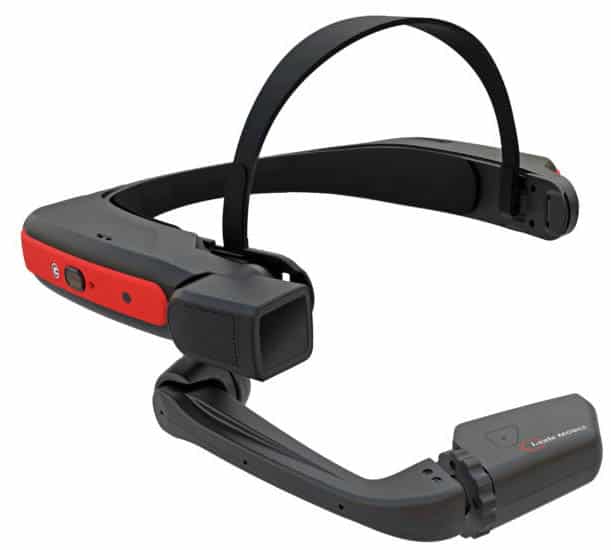Selected companies that trust ALEGER



Into the digital age with augmented reality glasses
Basically, AR glasses can mean both assisted and augmented reality glasses. Below we present the top 4 glasses that are used in around 80% of our applications.

HMT-1
The HMT-1 is now a classic among AR glasses. These glasses have proven themselves many times, especially for remote support and maintenance work. The device comes in an industrial design, with a 16 mega-pixel camera, and language controls. Hands-free work is really lived here.
Technical specifications:
- Camera: 16 megapixels
- Operation: voice control
- Battery:> 8 hours
- OS: Android 9.0
- Addition: Light, Zoom, Noise Cancelling, Image Stabilizer

HoloLens 2
The AR glasses from Microsoft integrate a 3D display with sensors that continuously scan the room. This makes it possible to render graphics in 3D and place them anywhere in the room. The objects and elements are displayed via holograms and are executed using both special gestures and voice commands. The mixed reality glasses are very popular in development and construction, quality assurance, as well as in the training and development of employees.

EPSON BT-300
Another model in the “Mixed Reality Glasses” category is the BT-300 from Epson. These glasses are operated via an externally connected touchpad. The advantage of these glasses is the relatively large field of vision as soon as you look through the display. Therefore, these mixed reality glasses are used more for training and education purposes. These glasses are less suitable for remote support operations, as these mixed reality glasses do not have an autofocus and have a weaker camera compared to other models.
Technical specifications:
- Display: 720p
- Camera: 5 megapixels
- Battery:> 5 hours
- Interaction: Touch (D-pad)
- Projection: 80 inches at 5 m; 320 inches at 20 m

HMT-1Z1 (ATEX Zone-1)
The HMT-1Z1 is the only AR goggle on the market with ATEX Zone-1 certification. Accordingly, these glasses are very often used in areas such as in the oil / gas, pharmaceutical or chemical industry.
These glasses are used especially for remote maintenance work. As with the HMT-1, it is operated by voice control. This device can also be combined with accessories such as a protective helmet or hearing protection.
Technical specifications:
- Camera: 16 megapixels
- Battery:> 8 hours
- Interaction: voice control
- OS: Android 9.0
- Addition: Light, Zoom, Noise Cancelling, Image Stabilizer
APPLICATION AREAS OF THE AR glasses:
service & support
Connect to customers in seconds. By seeing what your customers see, you can provide ad-hoc help directly. You also save travel time and travel expenses.
TRAINING
Train employees on systems. Train essential work steps to ensure the manufacturing process. Customers can also be easily trained using the mixed reality glasses.
MAINTENANCE
Have the next work steps played directly into your field of vision. In this way, processes are carried out 100% correctly and nothing is forgotten.
DEVELOPMENT
Visualize components or entire machines. Place the 3D models in the room and discuss the prototype with your colleagues. In this way, improvements can be identified as quickly as possible.
Augmented reality glasses: what to watch out for?
There are many small levers when choosing augmented reality glasses, which ones
decide the success or failure of your AR project.

SERVICE
Whether day or night. Your customers can request online support at any time and connect to your support.

OPERATION AREA
Provide service and support in any language through the integrated translation chat, which is displayed directly in the data glasses or smartphone.

CAMERA
Mark and edit the image live and directly in the video stream to give precise instructions.

FUNCTIONALITY
What functionalities should the augmented reality glasses have? Think of mundane features like battery life, autofocus, taking photos, editing options.

WEARING COMFORT
It makes a big difference whether I wear the augmented reality glasses only occasionally or for several hours a day. Especially here, both the wearing comfort and the weight of the glasses must be taken into account

USER ACCEPTANCE
How do the actual users feel about augmented reality? Concerns about surveillance and too much transparency can prevent AR projects. Therefore, always keep an eye on user acceptance and clearly emphasize the advantages
